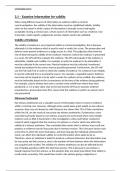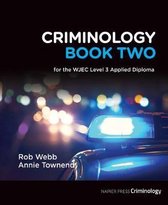Summary
Summary WJEC criminology unit 3 - crime scene to courtroom AC3.1
- Course
- Institution
- Book
This document includes notes and information about AC3.1 within unit 3 criminology that allowed me to achieve an A grade. Here you will find information about how to determine the validity of: evidence, witnesses/testimonials, trial transcripts, media reports, court judgements and law reports.
[Show more]




